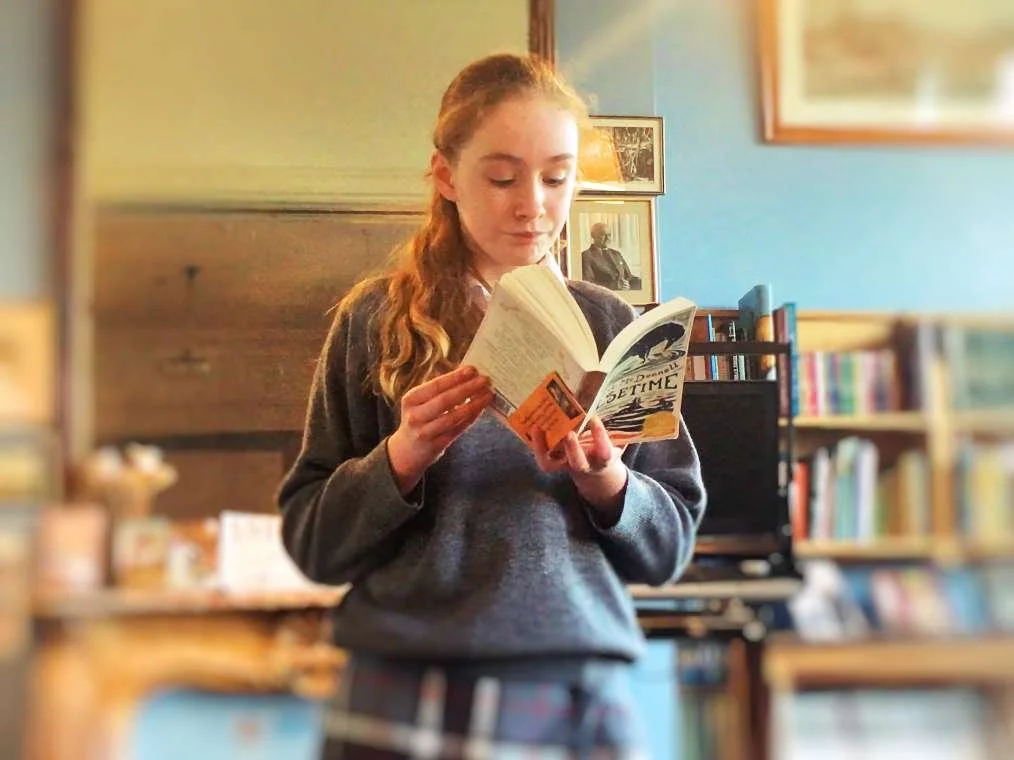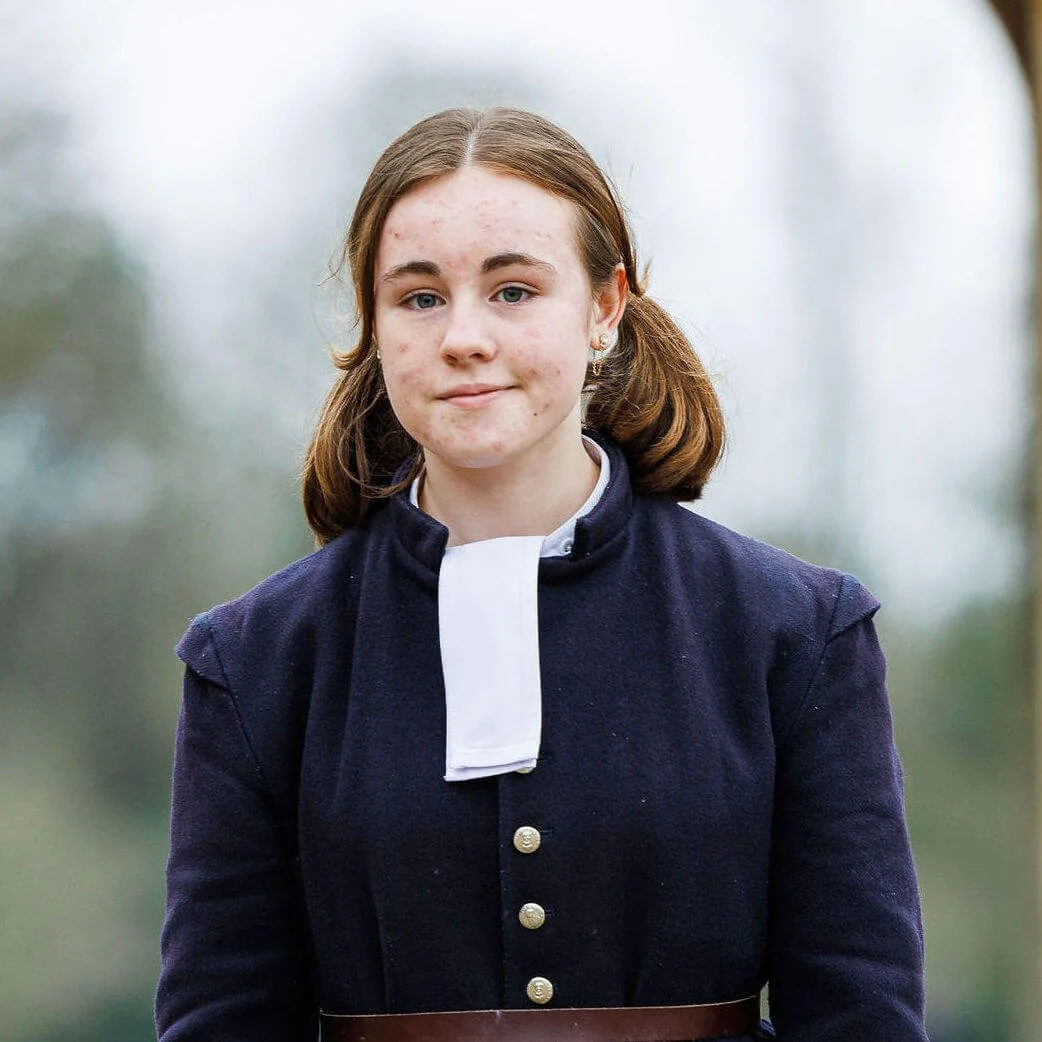Discover the History Curriculum at West Sussex preparatory school Sompting Abbotts
“A people without the knowledge of their past history, origin and culture is like a tree without roots.”
Aims
The aim of History teaching at Sompting Abbotts School is to stimulate the children’s interest and understanding about the brilliant stories of the life of people who lived in the past, including using our own superb resources – our grounds and historic buildings.
We teach children a sense of chronology and through this they develop a sense of identity and a cultural understanding based on their historical heritage. They learn to value their own and other people’s cultures in modern multicultural Britain and, by considering how people lived in the past, they are better able to make their own life choices today.
In our school, History makes a significant contribution to citizenship education by teaching children about how Britain developed as a democratic society. We teach children to understand how events in the past have influenced our lives today; we teach them to investigate these past events and thus develop skills of enquiry, analysis, interpretation and problem-solving.
Our goals
To foster in children an interest in the past and to develop an understanding that enables them to enjoy all that History has to offer.
To enable students to know about significant events in British History and to appreciate how things have changed over time.
To develop a sense of chronology.
To know and understand how the British system of democratic government has developed and, in so doing, to contribute to a child’s citizenship education.
To understand how Britain is part of a wider European culture and study aspects of European history.
To have knowledge and understanding of historical development in the wider world.
To help children understand society and their place within it, so they can develop a sense of their cultural heritage.
To develop in children the skills of enquiry, investigation, analysis, evaluation and presentation.
What will my child study?
Well done to Year 3 for their brilliant pop-up Egyptian Museum which opened for one day to mark the completion of their Autumn term topic. All the fascinating artefacts were made and labelled by the children. As expert Egyptologists, they guided pupils from the other year groups around their collection which included cartouches, the Rosetta Stone and gold sculptures from pharaonic tombs.
Year 3 (with Mrs Kelly)
Autumn Term Topic: Ancient Egypt
Spring Term Topic: Ancient Greeks
Summer Term Topic: The Celts
Year 4 (with Mr. Buckingham)
Autumn Term Topic: Invaders: Romans
Spring Term Topic: Invaders: Anglo-Saxons and Vikings
Summer Term Topic: Norman Conquest
Year 5 (with Mr. Douch)
Autumn Term Topic: Richard III, Henry VII, Henry VIII and the Reformation
Spring Term Topic: Edward VI, Protestantism, Persecution, Mary I and the Counter-Reformation, Elizabeth I and the Spanish Armada
Summer Term Topic; James I and the Gunpowder plot, Charles I and the English Civil War, Cromwell, Charles II, James II, William and Mary
Year 6 (with Mr. Buckingham)
Autumn Term Topic: Victorian Britain- Victoria the monarch, inventions and innovations, life in Service, chimney-sweeps, the Great Exhibition
Spring Term Topic: The First World War, its causes, the aftermath
Summer Term Topic: The Era of the Second World War: Dunkirk, Battle of Britain; the Holocaust, Atomic Bomb; Legacy of the Second World War
“I’m interested in the way in which the past affects the present and I think that if we understand a good deal more about history, we automatically understand a great more about contemporary life.”
Year 7 (with Mr. Buckingham)
Autumn Term Topic: beginning work on Common Entrance syllabus. Medieval Realms: 1066, succession crisis, battle of Hastings and aftermath. Henry II and the Church.
Spring Term Topic: King John and Magna Carta, Henry III, begin work on Edward I
Summer Term Topic: Edward I, Wales and Scotland
Year 8 (with Mr. Douch)
Common Entrance Syllabus:
Autumn Term Topic: The Wars of the Roses: Henry VI, Margaret of Anjou, Richard of York and Edward IV
Spring Term Topic: The Wars of the Roses: Margaret Beaufort, Elizabeth Woodville and Richard III
Summer Term Topic: CE practice and post-CE project work
Scholarship Syllabus:
Autumn Term Topic: Edward III and the Hundred Years War: why Edward claimed France; Halidon Hill, Sluys, Tournai, Crecy, Poitiers
Spring Term Topic: The impact of the Black Death on the War; the laws of Edward III and the reign of Richard II, the Peasants’ Revolt
Summer Term Topic: Scholarship examinations and post-Scholarship project work


































What child doesn’t love to collect handfuls of glossy brown conkers? At Sompting Abbotts, they don't just fill their pockets — even socks become makeshift pouches. And so, at this time of the year, we send the children out into our school grounds to look for shiny conkers (not that they need any persuading).